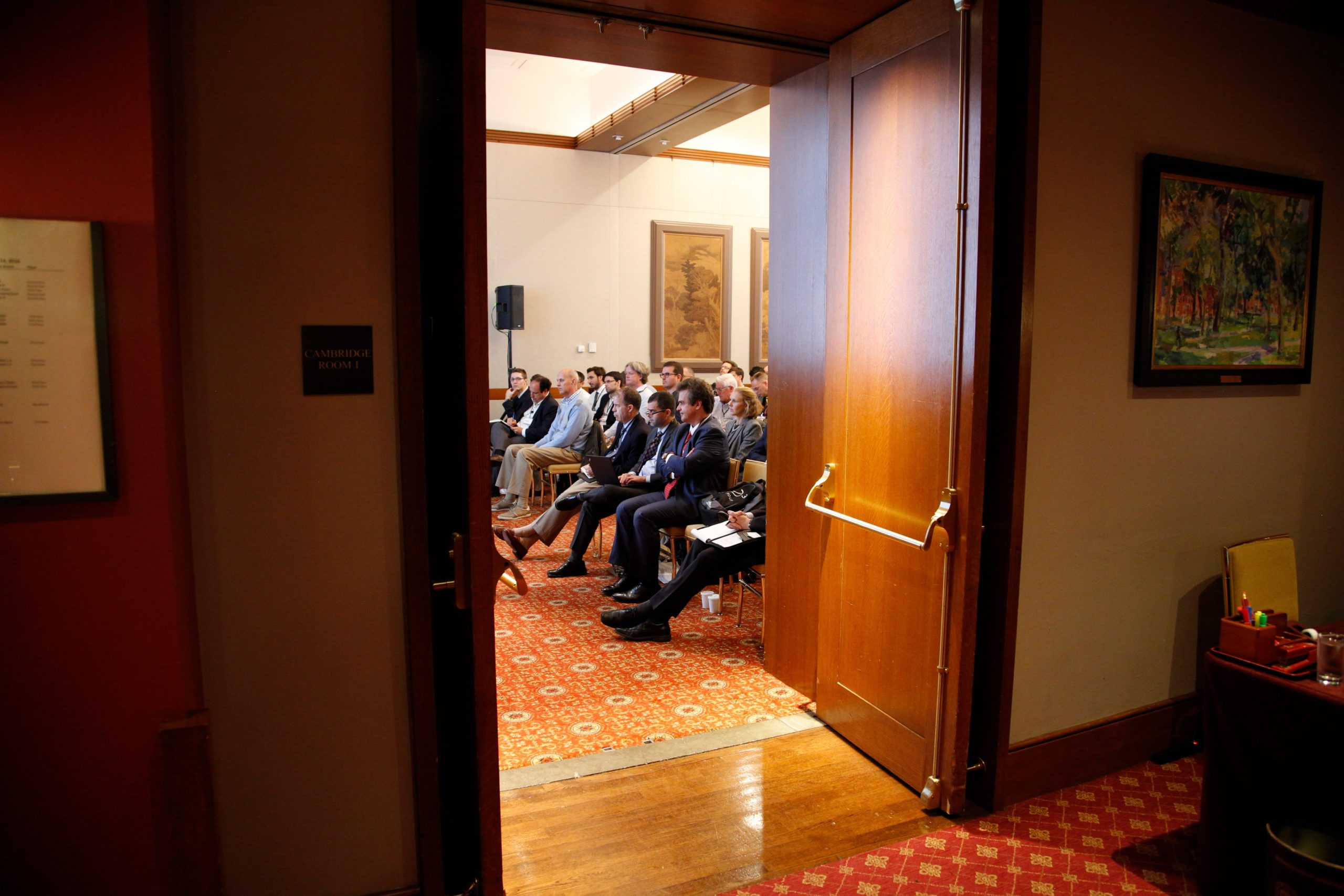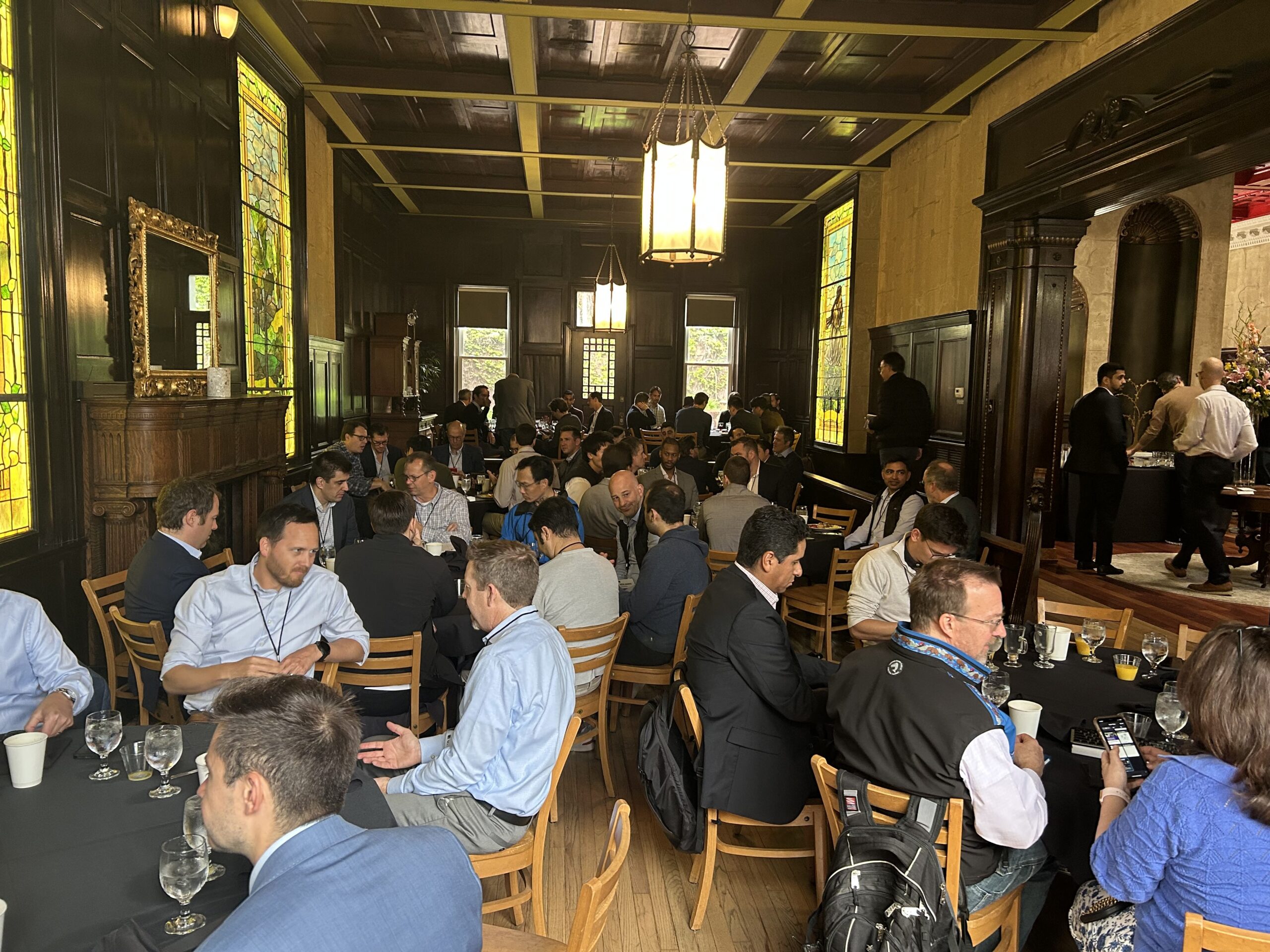This article is authored by MOI Global instructor Amit Wadhwaney, portfolio manager of Moerus Capital Management.
At Moerus Capital Management, we employ a fundamental, bottom-up investment process, with the goal of investing in assets at prices which represent significant discounts to their estimated intrinsic value, all the while heavily emphasizing risk avoidance and mitigation. Importantly, the risk that we seek to mitigate is not short-term share price volatility (market risk), but rather the risk of a permanent loss of capital. In fact, we embrace market risk as a provider of periodic opportunities to invest in what we believe are high-quality assets or businesses at bargain prices. We believe that buying as cheaply as possible is critical both to risk mitigation as well as to the potential generation of attractive long-term returns.
In striving to buy as cheaply as possible, we estimate intrinsic value using very conservative estimates that weigh a company’s balance sheet and what is known today much more heavily than projections of future earnings and cash flow, which may or may not materialize. In other words, in general we try to buy shares of businesses at sizable discounts to what we think they would be worth if sold today, using conservative assumptions. The asset-based investment approach that we follow at Moerus stands in contrast to the approach of many in the investment community who tend to focus more heavily on earnings and cash flows.
We don’t heavily weigh forecasts of cash flows years into the future simply because we believe the future is notoriously and inherently difficult to predict. We are not willing to “pay up” for businesses at prices that would only be attractive under optimistic assumptions of continued prosperity. By contrast, we believe that a conservative, asset-based valuation methodology often yields a “bedrock” (lower-bound) valuation, and that buying at a steep discount to such a bedrock valuation provides a cushion that provides downside protection and offers meaningful upside potential when there are favorable future outcomes, which typically aren’t “priced in” to the stock at such beaten down levels.
Implications of the Asset-Based Approach
Our approach to investing has several noteworthy implications regarding the types of situations that tend to find their way into the portfolio, and why.
What’s the catch?
At Moerus, we search for high-quality, long-term investment opportunities which are available at attractive prices relative to what we believe their net assets are worth today, without attributing any value to optimistic forecasts of future earnings or cash flows. One implication of our approach is that such opportunities do not come easily or often – alas, there is usually “a catch,” or something “wrong” which drives pricing down to the unusually attractive levels which pique our interest. Common examples of what might be “wrong” include, among others, a challenging short-term outlook facing a company’s relevant industry or geography, or a company-specific misstep or hiccup that results in share price declines.
For traders and investors with very short time horizons, near-term uncertainty and turmoil might rule out any such investment. But our long-term focus allows us to look past temporary rough patches that render a company, industry or geographic market out of favor in the broader market as they often prove to be interesting sources of longer-term investment opportunities, provided that the turmoil is indeed temporary. Importantly, the underlying company must have the staying power and wherewithal to survive tumultuous times and thrive if, as and when the situation normalizes.
Unappreciated, Misunderstood, or Event-Driven
In addition to situations involving short-term (but temporary) turmoil, asset-based investing has also often led us in the direction of two other scenarios that sometimes lead to atypically attractive investment opportunities. First, companies that are underappreciated, underfollowed, complex and/or misunderstood occasionally provide interesting opportunities, in part because fewer eyes are examining and recognizing the value that may (or may not) be present within the business in question. Second, opportunity periodically can be found in situations in which hidden value could potentially be unlocked through event-driven scenarios; examples of these include liquidations, corporate reorganizations, mergers and acquisitions, and changes in industry or shareholder structure.
Deep Value and Emerging/Frontier Markets: Compatible… at Times
Another implication of our asset-based investment approach is that while opportunities to implement it in emerging and frontier markets are apt to be sporadic and infrequent, occasionally compelling balance sheet-based investments can and do become available at attractive prices. Traditionally these markets have not been considered a welcoming destination for deep value investors.
Notwithstanding the challenges currently facing many emerging and frontier markets, in general these markets have historically appealed to growth investors due to their attractive growth potential. Simply put, many investors have historically been willing to pay up for expected future growth in emerging and frontier markets, whereas at Moerus we look for bargains here and now, based on our estimates of net assets today. Partly as a result of this dichotomy, the predominance of investors who are willing to pay for projected future earnings growth in emerging markets has, in our view, generally translated into less frequent opportunities for the asset-based value investor such as Moerus. However, the very fact that these markets are heavily populated by growth investors provides us, from time to time, with intriguing investment opportunities that fit our approach – when events such as earnings disappointments, setbacks, or broader economic turmoil result in growth investors fleeing.
A final important point to make on this subject is that share price declines in emerging and frontier markets could be and often are exacerbated by the relative illiquidity of many of these markets. When investors flee illiquid markets, dramatic share price declines could result, potentially turning a stock that used to trade at a sky-high valuation a few years ago into a bargain today.
Patience
We think that it’s worth emphasizing that given the nature of these sources of opportunity, patience is a virtue when it comes to implementing this approach. Patience is needed to hold cash in the absence of attractive pricing and wait for quality investments to become available at truly modest prices. Once a promising long-term investment becomes available at a price that is cheap enough, patience is often required to hold (or add to) the investment, as the poor near-term conditions that contributed to the deep discount continue to run their course. Of course, patience must be backed by conviction – developed through research, analysis, and considerable reflection – that such a prospective investment has the staying power to navigate its way through temporary difficulties until the underlying value is ultimately realized.
Asset-Based Investing: An Example
Not for the Fashionable
The asset-based investment approach requires patience because investment opportunities available at the type of valuations we seek do not come available frequently, and when they do, it is usually at a point in time in which the assets in question are underappreciated or out of favor. Attractive value investments, particularly those at the deep discounts that we require, are not available whenever they are “in fashion.” In that sense, we often find ourselves looking for bargains in some of the most far-flung or “out-of-fashion” places, where many others in the investment community for various reasons are biased against venturing. Importantly, the “far-flung places” in which we often find ourselves are not always specific geographic locations, but also classes of companies that, for any of a host of possible reasons, fall under the radar of many analysts and investors who are more earnings-based.
One such class of companies is made up of those which, at some point, execute a sale of their principal operating business (and thus their principal source of earnings), thereby becoming cashed-up in the process, but often also falling off the radar of many earnings growth-oriented analysts and investors as a result of the sale. While infrequent and sporadic, in select cases “falling off the radar” could have such a dramatic effect on a company’s stock price that the business could become available at a meaningful discount to the current value of its primarily liquid net assets. This may (or may not) provide genuine opportunity, as we will discuss shortly. While the following investment is not (and was not) a Moerus investment, in hoping to better illustrate the risks and attractions that such an event-driven situation might periodically provide, we point to a historical example: Piramal Enterprises Ltd. (“Piramal”), an India-listed business development company, which sold its generics pharmaceutical business to Abbott Laboratories in 2010.
Noteworthy Features
In the case of Piramal, there were a number of noteworthy features that we have also seen in other asset-based investment opportunities over the years:
- Piramal sold its principal business on very favorable terms, realizing significant cash proceeds in the process.
- This sale left the company with little to no forward earnings visibility, as well as no obvious earnings growth for analysts to point to, forecast, and model.
- Sell-side analysts who had been covering the company subsequently dropped research coverage after the transaction.
- Further, the paucity of recurring earnings that remained resulted in a stratospheric P/E ratio (since there was no “E”) and in virtually no ROE (with no earnings to make up the numerator) – two basic statistics that are closely followed by many earnings-focused investors.
- As a result, subsequent to the sale of its principal businesses, Piramal presumably “screened badly,” or did not rank highly on the quantitative screens of investors searching for, among other statistics, low P/Es and high ROEs.
- Piramal was controlled by committed, competent ownership/management, with a long-term track record of growing shareholder value (through both operations and thoughtfully timed deal-making), and with significant skin in the game via equity ownership.
- Piramal’s well-timed sale of its generics business – which was priced at a whopping 30 times EBITDA – left behind a very strong, liquid balance sheet.
- Yet subsequent to the asset sale, an opportunity became available to invest in Piramal at a material discount to its reported book value, much of which, importantly, was attributable to cash and other liquid financial assets.
“Killing” the Messenger… Who Brought Great News
In sum, in our view Piramal’s asset sale was clearly a positive event for the company, given that it was completed on attractive terms, leaving the company with a massively liquid balance sheet in the hands of ownership with a proven record of creating value. However, somewhat paradoxically, this impressively value-realizing transaction seemed to be greeted by many analysts and investors with indifference and skepticism, if not outright negativity. Why?
- Many sell-side research analysts dropped coverage; we suspect because Piramal no longer neatly fit into a specific industry and because the company no longer produced recurring earnings from which to forecast and model in a straight-forward manner.
- Many earnings and growth-based investors – which we suspect make up the majority of players in most markets – also likely lost interest, given the absence of recurring and growing earnings.
- The transaction essentially eliminated recurring earnings while raising cash. Our experience has shown that the value of the optionality that cash provides is often underappreciated by the market as compared to traditional earnings metrics.
Situations like this one – in which there is a clear discrepancy between an unambiguously positive event from the standpoint of economic reality on one hand, and the recognition and appreciation (or lack thereof) that the transaction receives in the public securities markets on the other hand – are often sources of great long-term opportunity. Unusual bargains can sometimes be found in corners where many market participants are biased against looking.
Subsequent Events
The results? After the sale of its generic pharmaceutical business, Piramal, in our view, reasonably and thoughtfully redeployed the sales proceeds into new investments in numerous areas, including pharmaceutical services, financial services, and real estate. In the process, the company built a stable of new businesses that today generate almost US$1 billion in sales annually.
Investors who took advantage of the opportunity to invest in Piramal common stock (PIEL IN) at the unusually modest prices that had prevailed in the market after the sale of its generics business have, in our opinion, been well rewarded as, over time, its share price has, in our view, come to reflect the substantial value creation at the corporate level that we believe has been generated by the reinvestment of the proceeds raised from the asset sale.
Caveats and Concerns
Again, Piramal is not, nor has it ever been a Moerus investment; we only bring up this case to show a specific type of special situation that can offer opportunity. An obvious point is that not all cases of companies that sell a significant chunk of their assets end well for shareholders. As in all industries, geographic markets, indices, and investment portfolios that bear risk, this “class” of companies – those which have sold their primary business(es) – has had its share of both glowing successes as well as catastrophic failures over the years.
A company that builds cash on its balance sheet by selling its main assets might offer an intriguing investment opportunity, but on the other hand such a transaction often raises a host of red flags that must be identified in order to avoid impending investment disappointment, if not disaster. And this specific class of companies, in general, brings with it a lot of baggage in the form of issues that must be thoroughly considered and vetted before investing. In our view there are a couple of very significant issues surrounding this specific group.
First, when a company sells its principal operating business, we cannot overstate the degree of uncertainty that such a transaction adds to a company which had previously compiled a history of operating results, a history which many investors use to anchor their future expectations. Uncertainty abounds regarding a number of issues, including the loss of recurring income, the use of sales proceeds, and the timing and nature of the potential payoff from the investment.
Additionally, investors in companies where much of the value is attributable to cash and liquid assets, are inherently heavily reliant upon the management team (or controlling shareholders) in order to generate a successful investment outcome. We cannot overemphasize the importance of a thorough assessment of management in situations in which a large pile of unencumbered, liquid capital sits at the discretion of a company’s decision-makers. A strong, liquid balance sheet can easily be squandered if the management/owners put their own interests ahead of those of other shareholders, or if they damage asset value through poor strategic decision-making.
Suffice to say, these are major concerns that must be carefully considered prior to an investment decision. In many cases, such issues cause us to pass on otherwise interesting investment propositions. But uncertainty often brings opportunity with it, and if we are able to gain comfort in our appraisal of management’s skill, ability to create value over time, and integrity, such situations can offer compelling investment propositions.
In Conclusion
We believe that buying at a substantial discount to a bedrock valuation, based on a highly conservative, asset-based methodology, provides downside risk mitigation while also offering attractive upside potential, since favorable scenarios typically are not priced in at such depressed levels. To find these opportunities, one needs to be willing to look where others aren’t. Unusual bargains can sometimes be found in corners where others are biased against looking.
Any investments discussed in this letter are for illustrative purposes only and there is no assurance that Moerus Capital will make any investments with the same or similar characteristics as any investments presented. The investments are presented for discussion purposes only and are not a reliable indicator of the performance or investment profile of any client account. Further, you should not assume that any investments identified were or will be profitable or that any investment recommendations or that investment decisions we make in the future will be profitable. There is no guarantee that any investment will achieve its objectives, generate positive returns, or avoid losses.
THE INFORMATION IN THIS LETTER IS NOT AN OFFER TO SELL OR SOLICITATION OF AN OFFER TO BUY AN INTEREST IN ANY INVESTMENT FUND OR FOR THE PROVISION OF ANY INVESTMENT MANAGEMENT OR ADVISORY SERVICES. ANY SUCH OFFER OR SOLICITATION WILL BE MADE ONLY BY MEANS OF A CONFIDENTIAL PRIVATE OFFERING MEMORANDUM RELATING TO A PARTICULAR FUND OR INVESTMENT MANAGEMENT CONTRACT AND ONLY IN THOSE JURISDICTIONS WHERE PERMITTED BY LAW.













